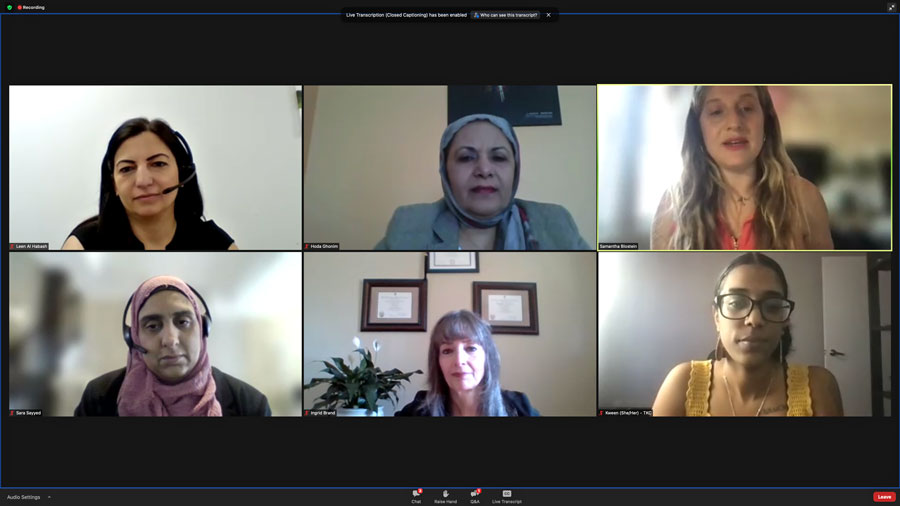WELLINGTON COUNTY – Nine out of 10 Indigenous people in Guelph and Wellington County say they have experienced discrimination in the last three years and two out of three immigrants and visible minorities say the same.
This, they believe, is due to their skin colour, their ethnic culture or their language.
Meanwhile, white people in the region who experience discrimination believe it has to do with their age or socio-economic status.
The Guelph Wellington Local Immigration Partnership (GWLIP), in partnership with the Community Engaged Scholarship Institute (CESI) and the College of Social and Applied Human Sciences at the University of Guelph, released the results of a study it conducted on discrimination at a virtual event on March 21, which was the International Day for the Elimination of Racial Discrimination.
The goal of the study is to form a baseline for further study of discrimination and support the development of evidence-based anti-discrimination initiatives locally.
Leen Al Habash, program manager of GWLIP, presented the findings and said the survey found that most people who experienced racism felt it at job interviews or promotions, and in public spaces like restaurants, on transit and in public parks.
And it came across through inappropriate jokes and derogatory language, through verbal abuse and threats, through physical abuse and threats, and damage to property.
Discrimination leads to depression and anxiety and discouragement with their lives, Al Habash said, and they often deal with the fall-out alone.
“It affects all aspects of their life,” she said. “It’s worth digging deeper to really understand what this means.”
Panellists at the event included:
- Hoda Ghonim, Newcomer Health Programs at the SHORE Centre;
- Ingrid Brand, principal of Brand Intercultural;
- Kayla, CEO of the Kween Company; and
- Sara Sayyed, senior advisor of equity, anti-racism and Indigenous initiatives for the City of Guelph.
It was moderated by Samantha Blostein, a global engagement specialist.
Each of the panellists said while the data was not shocking to them, it is important to use the information now that it’s been quantified.
“In my work, I am developing a framework for anti-racism and equitable service delivery. So this survey is important for me,” said Sayyed, at the City of Guelph.
“The other part is how to provide safe spaces and what safety looks like.”
“These findings are so impactful and confirms the work we’re doing,” said Kayla, who also goes by “Kween.”
Ghonim said given the data, it’s now time for action.
“This research gives us evidence-based numbers,” she said. “Now we need to figure out priorities.”
As an obstetrician, Ghonim said there is both personal and systemic racism in the healthcare system and that impacts the health outcomes of racialized patients.
“There are many gaps in healthcare,” she said. “We already had challenges before COVID. Now we need to figure out a new strategy.”
Brand said whether it’s intentional or not, discrimination takes a toll on racialized people.
There needs to be a place where people can report racism and discrimination and a body that can follow up with an organization or workplace to improve its policies, she said.
“We have to move beyond virtue signalling,” Brand said.
“After George Floyd, people denounced racism. But not much has happened to make a difference to marginalized people.
“And we can’t call on the BIPOC community to dismantle the system,” she continued.
“You need people who benefit from the system to dismantle it and change. It’s time for an outcome-based approach. You have to work on it every day.”
Sayyed advocated for more anti-racism and anti-discrimination training in the workplace.
“People who are resistant should watch a documentary, listen to a podcast or read a book,” she said.
“Let’s use the survey as a tool to figure out how to make places safe for everyone.”
The release will be followed by a second webinar on April 21 to discuss what actions the community can take to address the issues of racism and discrimination identified in the report.




